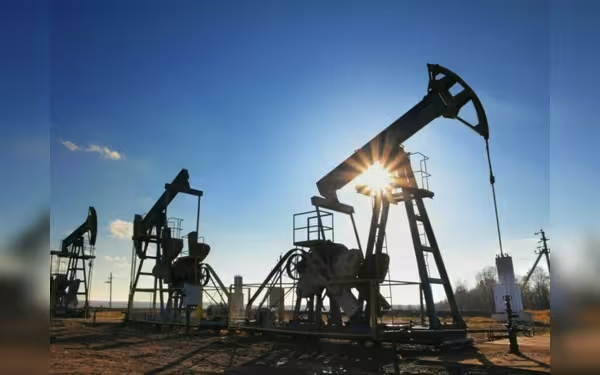Saturday, November 16, 2024 05:34 PM
Petroleum Levy Target Cut by Rs215 Billion in Pakistan
- IMF report reveals significant fiscal strategy changes.
- Petroleum Levy target reduced to Rs1.06 trillion.
- Government faces challenges in maintaining fuel prices.
 Image Credits: brecorder
Image Credits: brecorderPakistan's petroleum levy target is cut by Rs215 billion, reflecting changes in fiscal strategy amid challenges in maintaining fuel prices.
The recent release of the IMF Article IV Report has shed light on the financial landscape of Pakistan, particularly concerning the Extended Financing Facility (EFF). This report has brought to the forefront significant changes in the fiscal strategy that the government had initially proposed in the federal budget for June 2024. One of the most notable adjustments is the drastic reduction in the Public Sector Development Program (PSDP), which has been cut from a planned Rs1.4 trillion to a more conservative Rs983 billion. This 30 percent reduction was anticipated, as the original PSDP figures were deemed overly optimistic, compounded by the electricity subsidies that have further strained the budget.
Another critical aspect of the report is the government's handling of the Petroleum Levy (PL). Initially, the government set an ambitious target of Rs1.28 trillion for PL collection in FY25, representing a 26 percent increase from the previous year. However, with the retail gasoline price in Pakistan being one of the lowest in the region, the government faces challenges in meeting this target. Currently, the estimated revenue loss stands at approximately Rs40 billion, with the projected PL collection on gasoline and High-Speed Diesel (HSD) at Rs236 billion based on sales of 3.9 billion liters.
The government's hesitance to raise the PL to the maximum allowable ceiling of Rs70 per liter has contributed to the shortfall in revenue. Surprisingly, the IMF has not imposed strict measures on the government regarding this issue, as it has in the past. The revised PL collection target is now set at Rs1.06 trillion, a reduction of Rs215 billion or 17 percent from the original target. This new figure is only 5 percent higher than the revised collection of Rs1.01 trillion from FY24.
Interestingly, the IMF's leniency suggests a shift in its approach. The report does not outline any specific timelines for increasing the PL, which contrasts with previous agreements that mandated phased increases. Furthermore, there is no mention of implementing a Goods and Services Tax (GST) on petroleum, indicating that the IMF is comfortable with Pakistan maintaining one of the lowest fuel prices in the region.
This change in stance raises questions about the IMF's commitment to ensuring that partner countries price petroleum products according to external costs. Currently, the PL stands at no more than 23 cents per liter, while the IMF has previously advocated for a minimum of 45 cents per liter. It appears that the focus has shifted from enforcing strict pricing policies to ensuring that the government's revenue targets are met, regardless of the means.
The adjustments to the petroleum levy and the overall fiscal strategy reflect a complex interplay between government policy and international financial expectations. As Pakistan navigates these financial waters, it is crucial for the government to strike a balance between maintaining affordable fuel prices for its citizens and meeting its revenue targets. The leniency shown by the IMF may provide some breathing room, but it also underscores the importance of sustainable fiscal practices that can support the country's economic growth in the long run.













